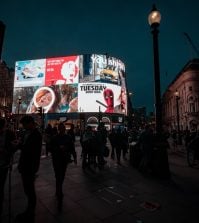Crime-predicting AI cameras to be installed in Korea

Surveillance cameras equipped with artificial intelligence (AI) software supposedly capable of detecting and predicting crime are to be installed on the streets of South Korean capital Seoul.
The government, which is working with the Electronics Telecommunications Research Institute (ETRI) on the project, says 3,000 cameras will be installed in the Seocho District of Seoul by July. The cameras will utilise AI to process location, time and citizens’ behaviour patterns to assess the likelihood of crimes taking place.
The software will be able to detect whether passers-by are wearing masks or carrying with them dangerous objects or potentially suspicious items, such as large bags, and could determine whether someone is being followed. In addition, the Seocho District of Seoul and ETRI are planning to analyse 20,000 court sentencing documents and crime footage to train the AI software, with the aim of allowing it to determine whether what is being filmed matches past crime patterns. An ETRI spokesperson told ZDNet that “it will work like déjà vu”.
If the software’s algorithms detect a certain probability of crime, an alert will be sent to the district office and nearby police stations, which will dispatch officers to the location.
According to the ETRI, the AI software is still in development but is expected to be completed soon, ready for the cameras to be installed in the summer. If successful, additional cameras will be rolled out to other districts of Seoul as well as other provinces in South Korea.























Can someone say Minority Report?
My thoughts exactly!
I predicted someone would have the same thoughts.